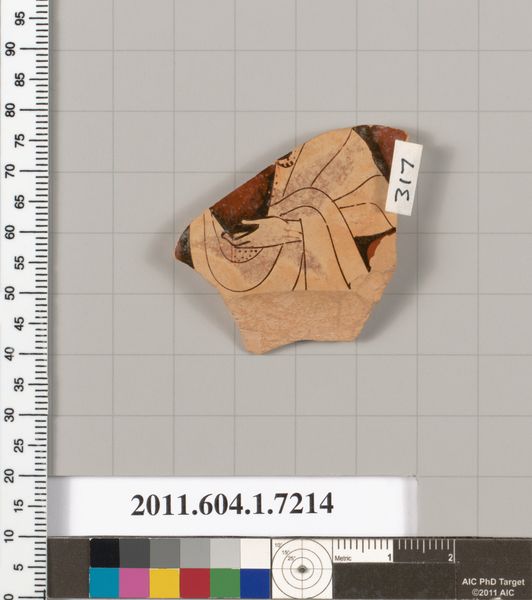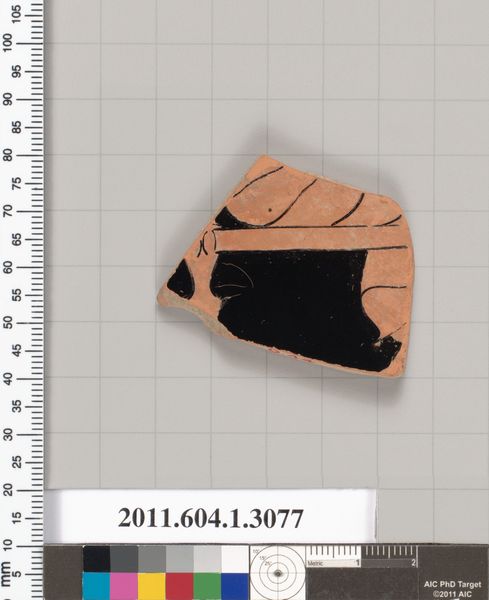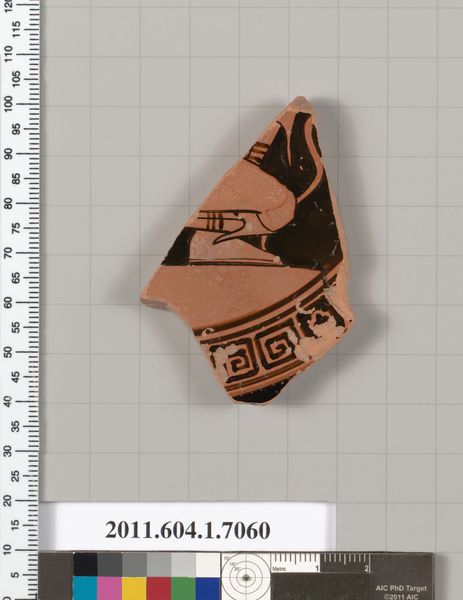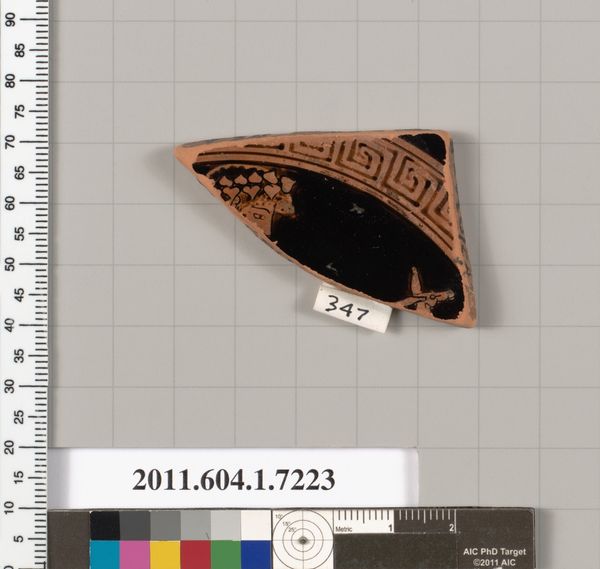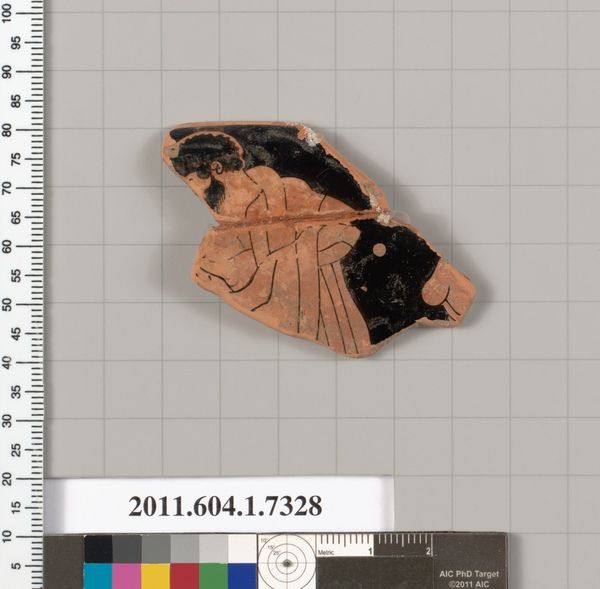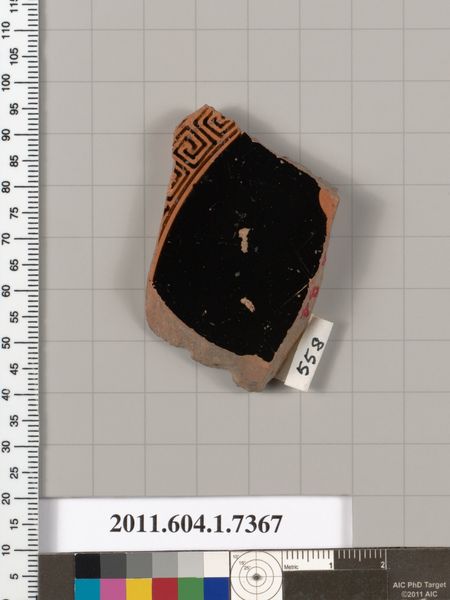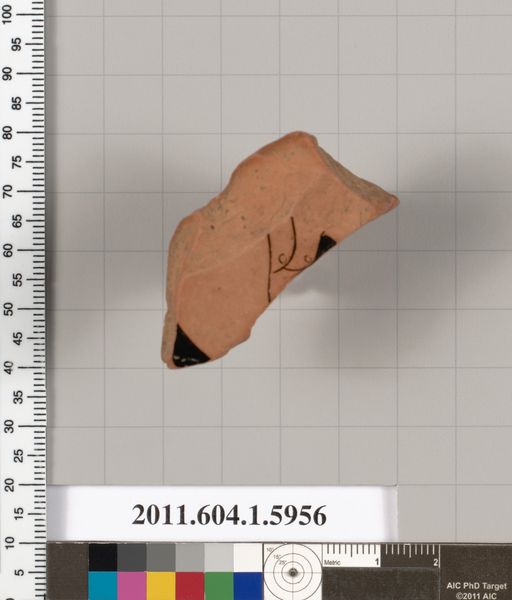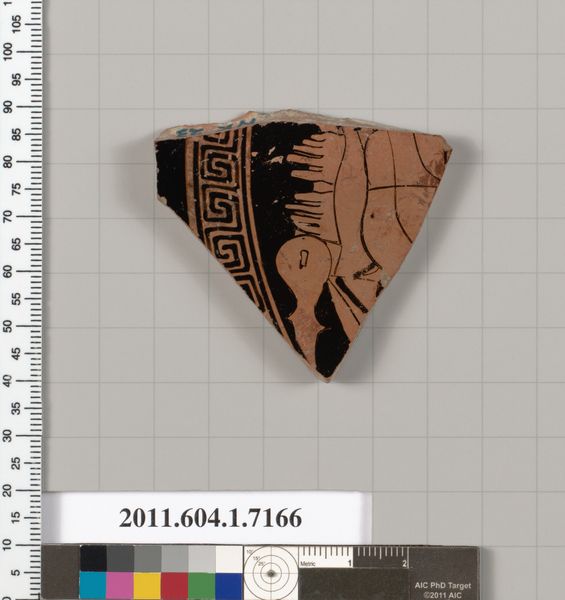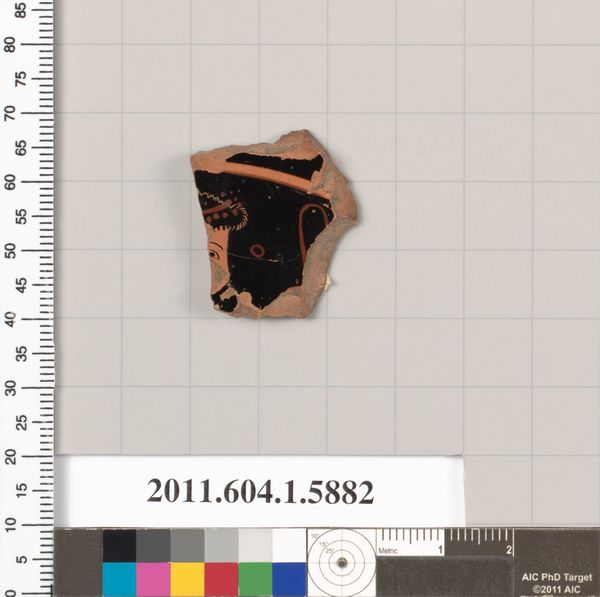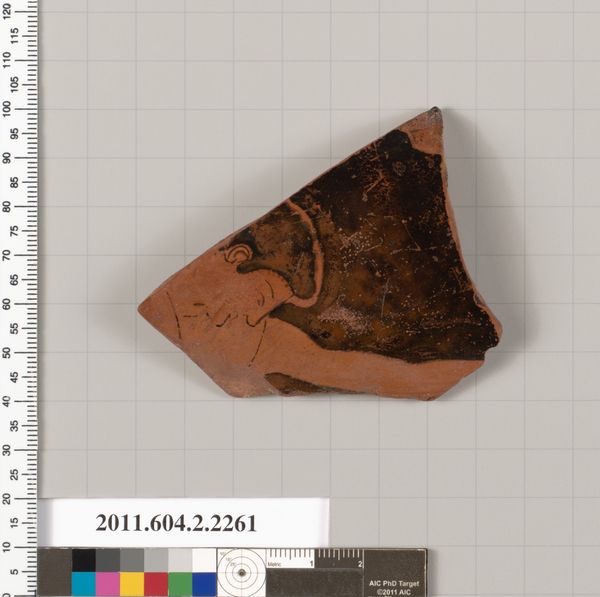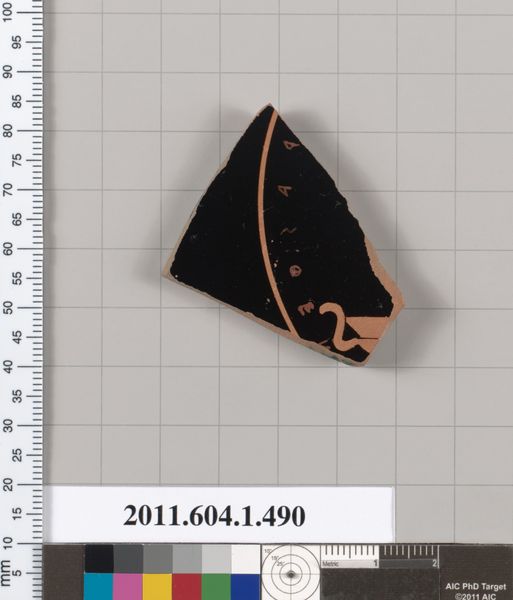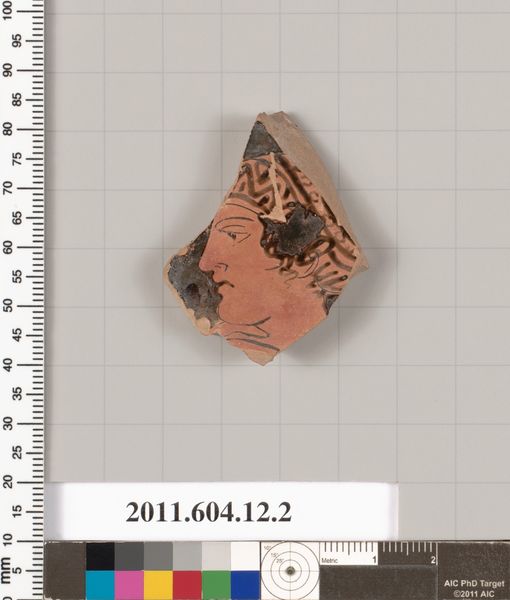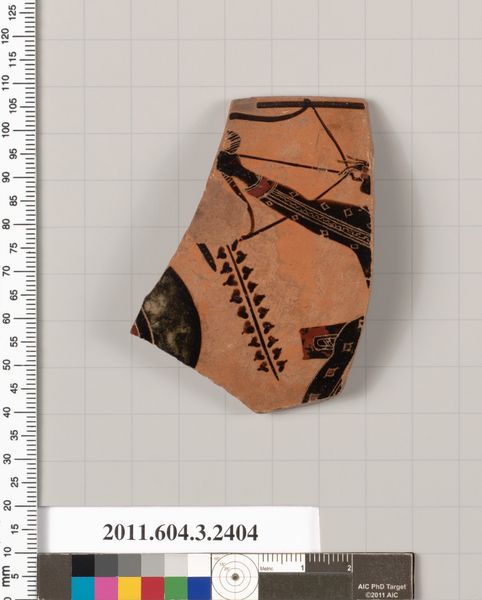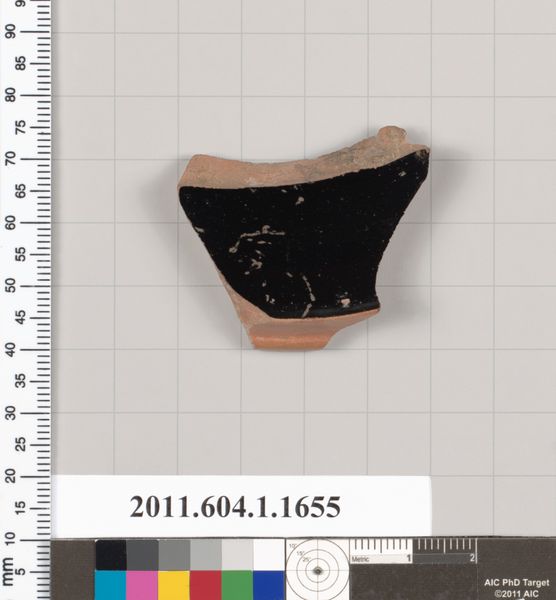
drawing, ceramic
#
drawing
#
greek-and-roman-art
#
ceramic
#
vase
#
roman-art
#
geometric
#
abstraction
Copyright: Public Domain
Curator: Here we have a fragment from a terracotta kylix, or drinking cup, dating back to around 530 BC. It’s currently housed at the Metropolitan Museum of Art. What are your first thoughts? Editor: Intriguing, yet incomplete. The broken edges give it a sense of vulnerability. The black glaze contrasts sharply with the warm terracotta, focusing my attention on the stylized, geometric pattern. It almost looks like a labyrinth. Curator: That labyrinthine pattern is what's known as a meander, a common decorative motif in ancient Greek art. The kylix itself, we believe, was crafted by Makron, a prolific vase painter. Editor: Considering its purpose, it must have been held during symposiums. What kind of symbolism did it have at that time? Was this kind of decorative element meant for specific viewers or to represent something broader in the community? Curator: Pottery shards like this one offer a fragmented, yet tangible connection to the symposium, an exclusive social gathering for aristocratic men in ancient Greece. Such gatherings served not just as drinking parties but also important venues for intellectual exchange. Editor: Interesting how objects designed for pleasure and social bonding became relics, sources of cultural knowledge, long after their original creators and users. It makes me wonder what narratives are attached to this object today, separate from the ones it once carried. Who gets to tell that story? Curator: Absolutely. Its preservation and display in a museum inherently involves interpretation. Who decides what’s worth saving and how it's presented definitely shapes the public’s understanding of ancient societies. Editor: Indeed. Objects become active participants in dialogues of power and cultural value, reminding us of both our connection to the past and our role in its continuing narrative. It is remarkable that, although only fragments remain, we can start imagining the social circles of this very distant past.
Comments
No comments
Be the first to comment and join the conversation on the ultimate creative platform.
